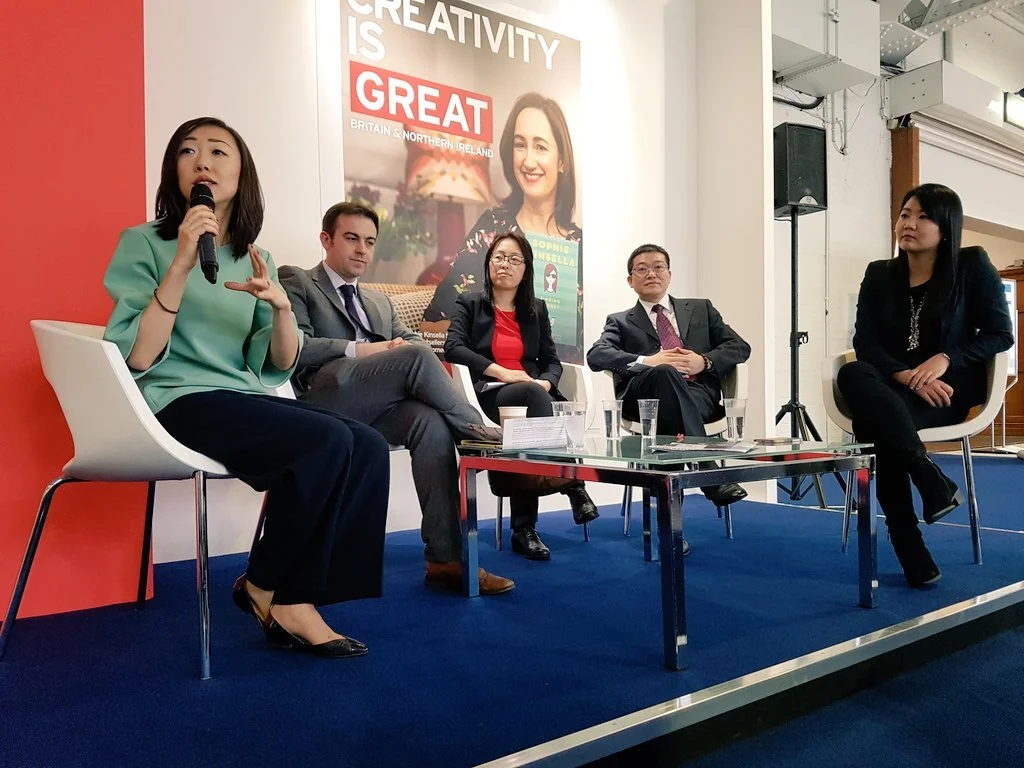Observations on ten years in publishing: Between East and West
With Covid curbs fading, China is set for a resumption in consumer spending. In an exclusive interview with China in Publishing, our CEO @AliciaLiu reflected on ten years in the industry working in China and the UK, offering insights on how international collaborations can break down geographical barriers due to the travel restrictions.
Here is a short English summary of the article. You can read the full interview in Chinese on Publishing in China - the magazine's November issue (中国出版人杂志 Link).
A little background:
In 2019, exports from British publishers hit a record high. The annual report of the British Publishing Association shows that China has become one of the most important markets for the UK in rights sales and the export of original titles. In recent years, the pace of exports from China's publishing sector has also increased. What part of Chinese publishing works best for the international market and how international IPs can be better adapted to the Chinese market - these are just two topics of common concern for publishers. In 2020, when several major international book fairs have gone online due to Covid-19, how can geographical barriers be broken down, and Chinese and international publishers collaborate?
At the beginning of October 2020, many large publishing groups in the UK announced that staff might work permanently from home due to Covid-19, since the international market is not expected tot recover until the second half of 2021. At the same time, international publishers are looking at China - where the epidemic has been largely controlled - to find long-term strategic collaborators for large-scale IP projects.This is a unique opportunity for both Chinese and international publishers.
Looking back, I entered the industry purely by chance
Publishing seems to be in my blood. My grandfather Dong Qiusi translated and published the novel "David Copperfield" by Charles Dickens in the 1940s. When I was young, I vaguely understood that publishing was about telling stories with an enduring cultural impact, but it wasn’t my first choice of career.
Growing up in Beijing and finishing my university studies in the UK, I first worked as an art researcher in New York for a year before returning to the UK to join the Mayor of London’s Office cultural strategy team. This was a time when London was positioned as a centre for creative industries, a destination for education as well as investment from China. This passion for cultural exchange brought me back to Asia again. In 2010, I finished working at the Hong Kong International Art Fair and returned to London for a second time. A board member of the fair, Philip Dodd who is a curator, writer and broadcaster of the BBC’s cultural programmes, introduced me to the director of the London Book Fair as China was to be the Guest of Honour 2012. That’s when my journey in publishing started.
UKDIT China Seminar at the London Book Fair
In the past ten years, China's publishing industry has undergone transformational changes, but this has not been all smooth sailing. I recall writing an observation piece back in 2013: Small is beautiful: a new generation of private publishers on Bookbrunch.
“Things are moving on at a breathtaking pace, even for China. Anyone who hasn't worked with China will probably be overwhelmed by the transformer-style evolution. And yet if you take a closer look at the Chinese publishing industry, you will find a more complex and ambiguous picture. It reflects a wider characteristic of China, that size and unified control is an illusion hiding a more fragmented and diverse organisation within.” That thought still holds certain truths today.
International press interview with book buyer from China e-commerce platform JD.com at Shanghai International Children’s Book Fair
In November 2013, Shanghai International Children's Book Fair (CCBF) took place for the first time in Shanghai. I remember hosting international journalists and publishers participating in the fair. Even though some had had more than 20 years experience in China, it was still the first time that many were visiting in person. Coinciding with the timely announcement of China's second-child policy, the domestic market was thirsty for children's book content from international publishers. Those who went early have witnessed the rapid development of China's children's book market ever since.
By 2018, when the long-established Beijing International Book Fair launched a children’s fair, China’s active content market had attracted many UK publishers to visit - some two to three times a year. The following year, 2019, proved to be a recording breaking year for UK publishing in China, according to the Publishers Association Annual Report. It’s no surprise to see that China has become one of the most important markets for UK rights sales and exports. In the past five years, the rights and export revenue from China has tripled, with fiction and children's books just two important growth areas for UK publishers in China.
In 2019, exports from British publishers hit a record high_Publishers Association Annual Report
The most important thing for East-West collaboration is often not the product, but a truly international team
In recent years, successful international content producers have come to realise that the best content export strategy is no longer a direct sale, it’s more about thinking globally and collaboratively developing content that suits the local market. A few years ago, we conducted research training for the senior team at BBC Studios. They have continued to deepen their cooperation with China on documentaries in recent years.
After successfully cooperating with Tencent to create "Planet Earth 2" and "Blue Planet 2," in 2018 they announced a new Tencent partnership to develop and grow BBC Earth Tribe - a Chinese online community for people passionate about natural history and science. This has taken a traditional content licensing and promotional model to a much deeper level of content collaboration. BBC Earth Tribe on Tencent will not just be the destination for BBC Studios’ new natural history programme such as Dynasties, it will also deliver the Chinese audience access to the series’ creators through Q&As with the producers online and at on the ground events.
BBC Studios China Workshop
International publishers need to take into account the trends and needs of the Chinese market and co-develop large-scale and customised projects, suitable for the Chinese market and scalable internationally. It’s interesting to see that several Chinese publishers, such as Mr. Xu Hai, the editor-in-chief of Phoenix Publishing and Media Group, have also proposed the concept of using an international editorial committee. The idea is to work with editors, within a global team, who understand both Chinese and international consumer mindsets. In this way, global writers will contribute and publish in Chinese, or multiple languages, internationally at the same time.
In the past ten years, China has developed a huge appetite for Western classics from the past 100 years. As a result, both the international vision of editorial teams and the taste of local readers have become much more sophisticated. So, for the next ten years, it is even more necessary to identify the contemporary content that not only meets the Chinese mindset, but also takes into account the international perspective. It will be a mutually beneficial collaboration, and will ultimately maximise the global outreach of English-speaking publishers.









